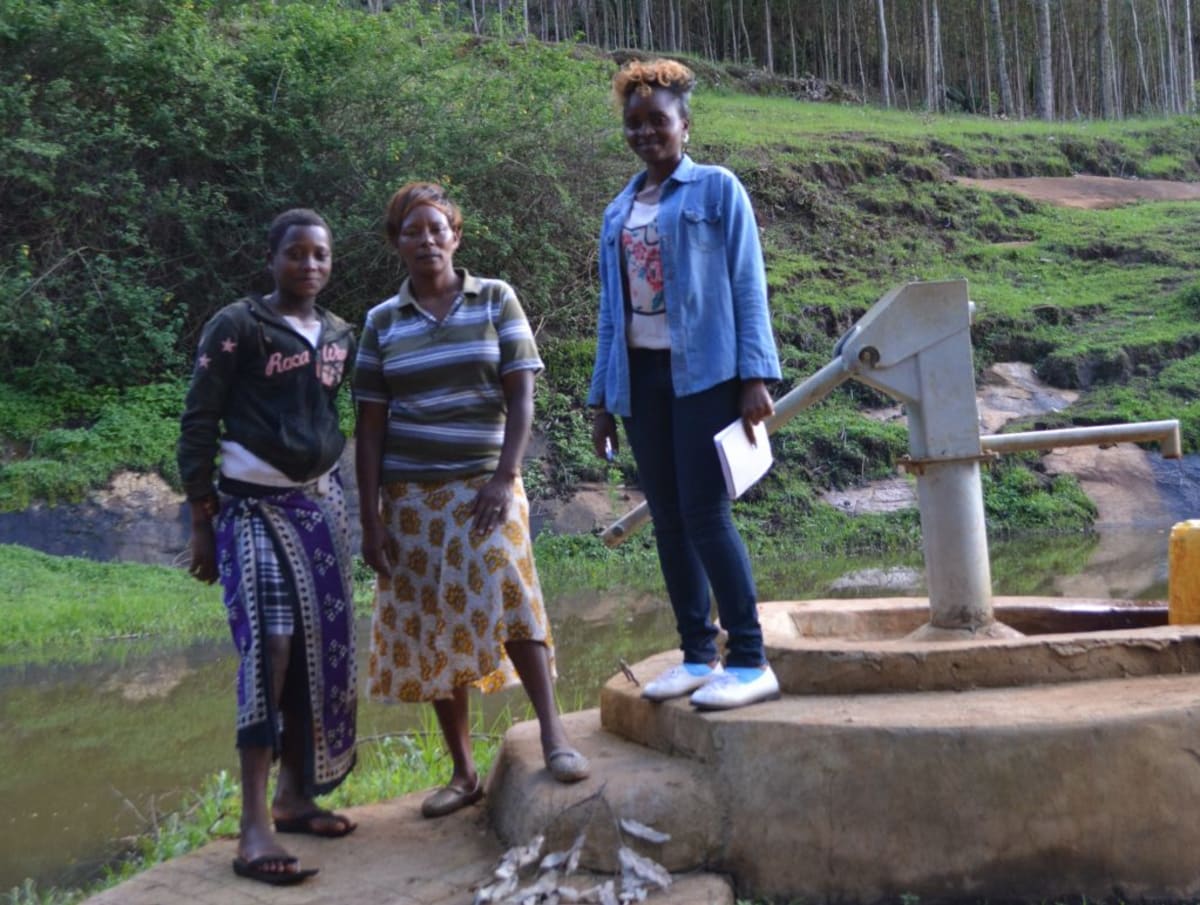This project is a part of our shared program with Africa Sand Dam Foundation. Our team is pleased to directly share the below report (edited for clarity, as needed).
Welcome to the Community
The Kyangundi Water Project Self-Help Group, as the name suggests, was formed with the sole purpose of addressing water insecurity in the area. Group members are from Kalawa Village, which is home to 345 people from 55 different households.
The self-help group has been able to work with the Constituency Development Fund (CDF), an institution that was formed in bid by the government to devolve broader services to a more local level. The first project undertaken by the group was a hand-dug well built beside a spring. The community has great self-motivation to seek partners like CDF. They are resolved and resilient, taking water scarcity head-on.
The community is located amidst hilly terrain and water supply is a huge challenge. After their first hand-dug well, the group wasn't able to continue because of financial constraints. Thus, the group sought ASDF's support to unite with them in tackling water shortage in their region. The group has already worked with ASDF for two years and has been able to complete two sand dams. To access clean drinking water, the community has asked for this project to be a hand-dug well adjacent to one of the sand dams.
Current Water Situation
For now, the community digs scoop holes next to their sand dams. Though these holes are full of good water, they are completely open to contamination from outside sources, such as dirty rainwater and animals. A mother or child will tote a 20-liter jerrycan to the scoop hole, and literally scoop the water up with their container! When we visited, we saw this process firsthand. Some of the water-fetching containers appear to be dirty, and most likely further contaminate the scoop hole's water. Once the water is brought back home, it is poured into a larger reservoir of 100-200 liters.
Fetching water from the scoop holes is time-consuming. On many occasions, a new scoop hole must be dug to access fresh water. On others, fetching water can be dangerous for young children at risk of falling in the large hole. Looking at the pictures, you'll also notice that water isn't only fetched from scoop holes, but directly from the dam itself as water drips and trickles over the ledge.
Current Sanitation Situation
All of the self-help group's households have pit latrines walled with concrete and roofed with iron sheets. These are cleaned regularly. All latrines have hand-washing stations outside, too! Almost all homes have dish racks and clotheslines. Families throw their garbage in compost pits that benefit their farms. Maybe these good conditions cause curiosity? Since the self-help group is on their third year of a five year program with ASDF, so they have been trained on healthy sanitation and hygiene habits already!
Plans: Hygiene and Sanitation Training Review
Since the community has already attended extensive training on hygiene and sanitation, we will offer one day of review. A lot of content will focus around the new well being constructed next to the sand dam: how to use, manage, and maintain the pump.
Plans: New Well
Construction is expected to take two months start to finish. It will be lined with concrete and fitted with an Afridev pump. Its location next to the sand dam will ensure that there is always a good supply of water accessible from the pump. This is because a mature sand dam not only naturally filters water, but raises the water table.

 Protected Dug Well
Protected Dug Well
 Rehabilitation Project
Rehabilitation Project


























